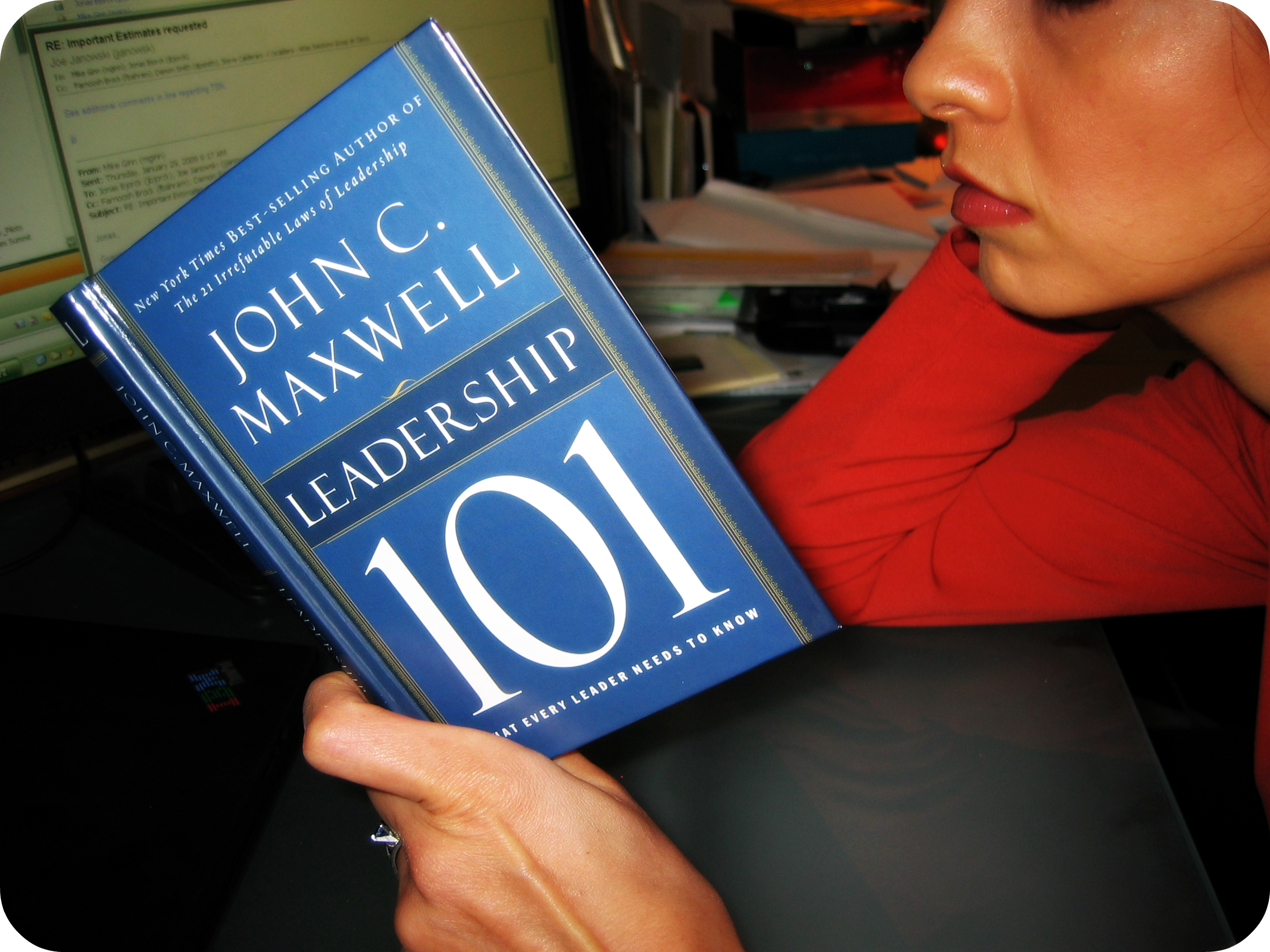“The first person you lead is you”
How true indeed. How could we become leaders of others if we have no leadership over our own lives, our own deeds and direction?
John C. Maxwell is a leader in business books. He has written numerous books on business, leaderships, relationships, attitude, and management. If you are delving into a topic either by necessity or for love of learning, it is worthwhile to look into the most prominent figures in the field. At the time I came across Maxwell’s books, I was deep into developing my leadership and management skills, and hence the two glimpses into the Maxwell perspective.

“Attitude 101” and “Leadership 101” are pocket books, small enough to carry everywhere with you. They both are sensible short reads, packed full of sharp, memorable quotes and good fables. The writing style is very good for the abstract concepts of attitude and leadership. Maxwell draws on role model leaders as examples to further prove the point he is driving home. Here are some of my favorite quotes:
- Trust as the foundation of leadership – People will forgive occasional mistakes based on ability but they won’t trust someone who has slips in character
- If you have talent and have seen lots of motion without complete results, you lack self-discipline
- You cannot overestimate the unimportance of practically everything
- A good attitude puts you in the place of greatest potential
- The evidence is overwhelming that you cannot begin to achieve your best unless you set some aim in your life
- Too often, we learn too late what is really important
- We can do anything, but we can’t do everything. Focus.
- The only way you can get ahead is to fail often, fail early and fail forward.
- Each fall makes you able to risk more.
I think most of us at one point or another have come across the ideas written in these books. They make up the core of conversations with our coaches, our bosses and our instructors in a leadership class. The trick is to really listen, understand and live them. It is a journey, a work in progress, never nearly complete and always with room for improvement. The point should be to move forward and to understand our failures for what they are so that we can embrace success when it meets us in our path.
Reading is the best pastime for an active mind! If you like to see the other book reviews, check the index of In Print.
One of the interesting ideas proposed by Maxwell is that of planned neglect. He tells us the story of the violinist who would return to her room after class, and start to clean up, organize, take care of all possible mundane efforts, and as a result procrastinate her violin practice. She realizes she was clearly not progressing until she reversed her tactics – purposefully neglecting that which is not important and critical in order to invest her energy in her rigorous, thought-provoking, intense responsibilities. I play the role of that violinist only too well.
With my long to-do list, I always set out to attack the easiest, the quickest, the least effort intensive task first. I linger, procrastinate, and tiptoe around the goals I have myself set for me without any pressure or obligation from anyone – I find every reason to do something else that I am certain of fully realizing to the end. Perhaps it is the quick sense of accomplishment that I crave. Or perhaps it is what I read about in “The Zahir” – the one thing I clearly remember. That we may be afraid of our own true potential to the point of creating these mental blocks. That if we accept and embrace that nothing is impossible, we will focus on the goals we are so desperately dreaming of realizing.
Maxwell has a strong ethical voice throughout his writings; his faith comes through clearly in both of these books. I found most of his beliefs to be universally respectable, and particularly remember one that I can identify with: “A life in which anything goes will ultimately be a life in which nothing goes.”
Reading these books did not change my life, or show me nuggets of wisdom I had not been exposed to before. All the same, I read them with focus and with intention to use the advice and to live a life with better attitude. I welcome even the repetition of invaluable lessons that are all but difficult to apply to my life. Knowing and becoming what we know we ought to be are certainly not the same. Reading Maxwell’s book makes the gap between the two smaller.
 I am Farnoosh, the founder of Prolific Living. So glad you are here. My mission is to empower you to unblock your creative genius to live your dream life.
I am Farnoosh, the founder of Prolific Living. So glad you are here. My mission is to empower you to unblock your creative genius to live your dream life.